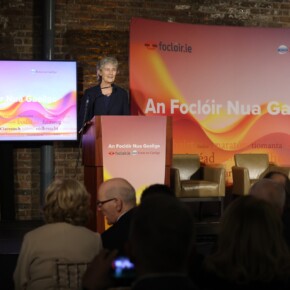Mother jailed for child neglect
Dublin People 18 Feb 2025
By Eimear Dodd
A mother of seven has been jailed for two and a half years for the “very serious” neglect of six of her children over a four-year period.
An investigating garda previously told Dublin Circuit Criminal Court that the house where six young children then lived was filthy and freezing cold. She described it as the “worst conditions I have ever witnessed”.
A 34-year-old woman pleaded guilty to a charge of child neglect on dates between 2016 and January 2020. The woman can’t be named to protect the children’s anonymity.
The maximum sentence for child neglect is seven years’ imprisonment.
The court heard that the six children, then aged between eight years old and 10 months, were taken into care in January 2020. The woman has since had another child.
After hearing the facts of the case, Judge Martin Nolan adjourned the case overnight to consider sentence.
He said this case was “close to the highest end of the range” for sentencing due to the “extreme neglect” of these six children over a four year period.
The judge said the woman had a responsibility to her children, which she didn’t discharge. “It seems to me that the children suffered very serious harm as a result of her neglect,” Judge Nolan said.
Referring to the mitigation, the judge accepted the woman was in a physically abusive relationship at the time of her offending. He said it seemed that she has since “changed her life” and has a young child, to whom she is a “good mother”, with a new partner.
While there was “strong mitigation” in the case, the neglect and cruelty to the affected children was “very serious,” the judge said.
He said the woman was a “mature adult” at the time and “should have known better”.
He said she had a “high level of culpability” for the offending, which took place over a four year period.
“The real question for the court is does this defendant deserve a custodial term by reason of her behaviour and her omissions in relation to the care of these children.”
Judge Nolan said “unfortunately” the court had concluded a custodial sentence was required to punish the woman and for “general deterrence in relation to the care of children”.
As the sentence of two and a half years was imposed, the woman became distressed. She told the court she had “worked so hard” and was “so sorry”.
“Please judge, my baby is outside. Oh my god, I can’t lose my babies again. They’ve already been through enough, please. I can’t lose my babies all over again.”
Judge Nolan said the court was aware of that, but had imposed the sentence for the reasons outlined.
The second oldest child, now aged 12, told the court in his victim impact statement that when he was five or six, he had to take care of his younger siblings. He said there was hardly any food and recalled eating mouldy bread and drinking gone off milk.
An investigating garda previously told Aoife McNickle BL, prosecuting, that the family had come to Tusla’s notice before a complaint was made to gardai in July 2019. The agency had various concerns, including about the absence of the older children from school, and the use of alcohol and drugs in the home.
Other services were also involved with the family, including a local GP, the public health nurse and a dietician as there were concerns the children were malnourished. However, there was no meaningful engagement by the woman with relevant services, the court heard.
After gardai became involved in July 2019, a series of unannounced visits were made to the house which continued until January 2020 when the six children were taken into State care.
The investigating garda said she noticed a deterioration in the condition of the house during this seven-month period. It was the “worst conditions I have ever witnessed”, she told the court.
She described the house as “freezing cold”, and in a “filthy condition”, with rubbish on the kitchen floor and in the back garden.
The garda said she observed a mouse in the kitchen on one occasion, and that the room was not in a fit condition for food preparation. The upstairs of the house, including the bedrooms, was also filthy with a dirty mattress in the bath, rendering it unusable, and dirty clothes in the sink.
The garda said she asked the woman to get a heater during one visit as the house was so cold and the defendant made calls to try to get one. She said some of the children were semi-dressed or wearing ill-fitting clothes on this occasion.
Photos of the house were provided to the court.
Between 2018 and 2019, the school-aged children were going to school less than 40% of the time, the court was told.
The three older children were interviewed by specialist gardai after being taken into care. They gave broadly similar accounts about the condition of the house. They also made allegations that they were physically abused by another party, and not kept safe by their mother.
The six children are now aged between 13 and five years old. The court heard they are in foster care and now doing well. The woman has regular access visits with the three younger children, but not with three older ones, who do not want contact with her.
The woman was arrested in late 2021 and nothing of evidential value was obtained from her garda interviews. She has no previous convictions.
A victim impact statement from the eldest child was handed to the court, but not read aloud.
The second oldest child (12) read his impact statement over videolink. He said he was really scared and that his mother “never helped me”. He said he finds it hard to trust or talk to an adult.
The boy said he stills gets very angry and scared, but has a “better life” now. He said he didn’t know his ‘ABCs’ when he was seven, but loves school and sports.
“My life only started when I was seven,” he said, saying he would like the court to place his mother under house arrest so she could continue to care for her youngest child.
The woman appeared distressed while the boy read his impact statement to the court.
The garda told defence senior counsel Fionnuala O’Sullivan that she was not aware the woman was in an abusive relationship at the time, but accepted one of the older children made a reference to their mother being assaulted in their specialist interview with gardai.
The witness further accepted the defence’s contention that the woman’s relationship ended after the six children were taken into care and that this was a “turning point” for her.
It was also agreed that the woman is now in a new relationship, which appears to be completely different to her previous relationship. The garda also accepted that the woman appears to have made progress in addressing her issues and in her parenting.
A number of documents were handed to the court.
Ms O’Sullivan said her client accepts full responsibility for her actions and that she failed completely and utterly in her parenting of the six children.
She said the woman had done everything possible to turn her life around, not because of the criminal court case, but for her children and herself.
Counsel outlined her client’s circumstances at the time of her offending and asked the court to accept the woman was in a domestic violence situation at the thime.
Ms O’Sullivan said her client has taken steps to address her addiction issues and is attending counselling. She asked the court to take into account that the woman’s offending took place within a particular context, which was not being used as an excuse.
Ms O’Sullivan said her client’s new partner is supportive. She said Tusla had concerns about her client’s youngest child, who was initially placed in the care of family members, but has been living with the woman and her partner since mid-2023.
Counsel said her client respects her three older children’s wishes to have no contact with her, but maintains contact with their foster carers. She has regular access to her three younger children with plans in place for these visits to increase in the near future under the supervision of social services.
Judge Nolan noted that parenting is one of the few relationships in law which requires one party to take care of another. He said parents are required to take care of a child’s general needs, but noted they can “commit sins of commission or of omission”.
“In this case, most of the sins were probably of omission,” the judge said, adding that it seemed to the court that the woman had “failed in all of these aspects of parenting”.
After imposing sentence, the judge said the court had considered whether or not to impose a suspended or part-suspended sentence, but considered that that the woman didn’t require this to encourage her to “change and to stay changed”.











